
Ayurvedic hair oils have been used for centuries in India as a natural solution for promoting healthy hair and scalp.
These oils, made from a blend of Ayurvedic herbs and plant extracts, are becoming increasingly popular worldwide as ladies with curly hair seek alternative hair care treatments that are free from harmful chemicals.
However, with so much conflicting information out there, it can be difficult to know how to use Ayurvedic hair oil effectively.
In this article, we will delve into the benefits of Ayurvedic hair oil for hair growth, thinning, hair loss, an itchy scalp, and so much more. We'll also provide practical tips on how to incorporate the herbal oil into your hair care routine.
Table of Contents
Using Ayurvedic Hair Oil to Improve Hair Growth
Before using any Ayurvedic hair oil, do a patch test to ensure you are not allergic to any of the ingredients. If you experience any irritation or discomfort, stop operating the oil immediately.
Here are the steps to use Ayurvedic hair oil for hair growth at home:
- Choose the right Ayurvedic hair oil: Look for hair oils that contain herbs like bhringaraj, amla, Brahmi, neem, or shikakai. These herbs are known to promote hair growth, strengthen hair follicles, and nourish the scalp.
- Apply the hair oil: Take a small amount of hair oil and massage it gently into your scalp with your fingertips. Make sure you cover all areas of your scalp.
- Leave the oil on your hair for at least 30 minutes: After applying the hair oil, leave it on your hair for at least 30 minutes to an hour.
- Rinse off the oil: After an hour, rinse off the oil using a mild shampoo. Make sure you rinse your hair thoroughly to remove all the oil.
- Repeat the process: You can repeat this process once or twice a week for the best results. With regular use, Ayurvedic hair oil can help promote hair growth and improve the overall health of your hair and scalp.
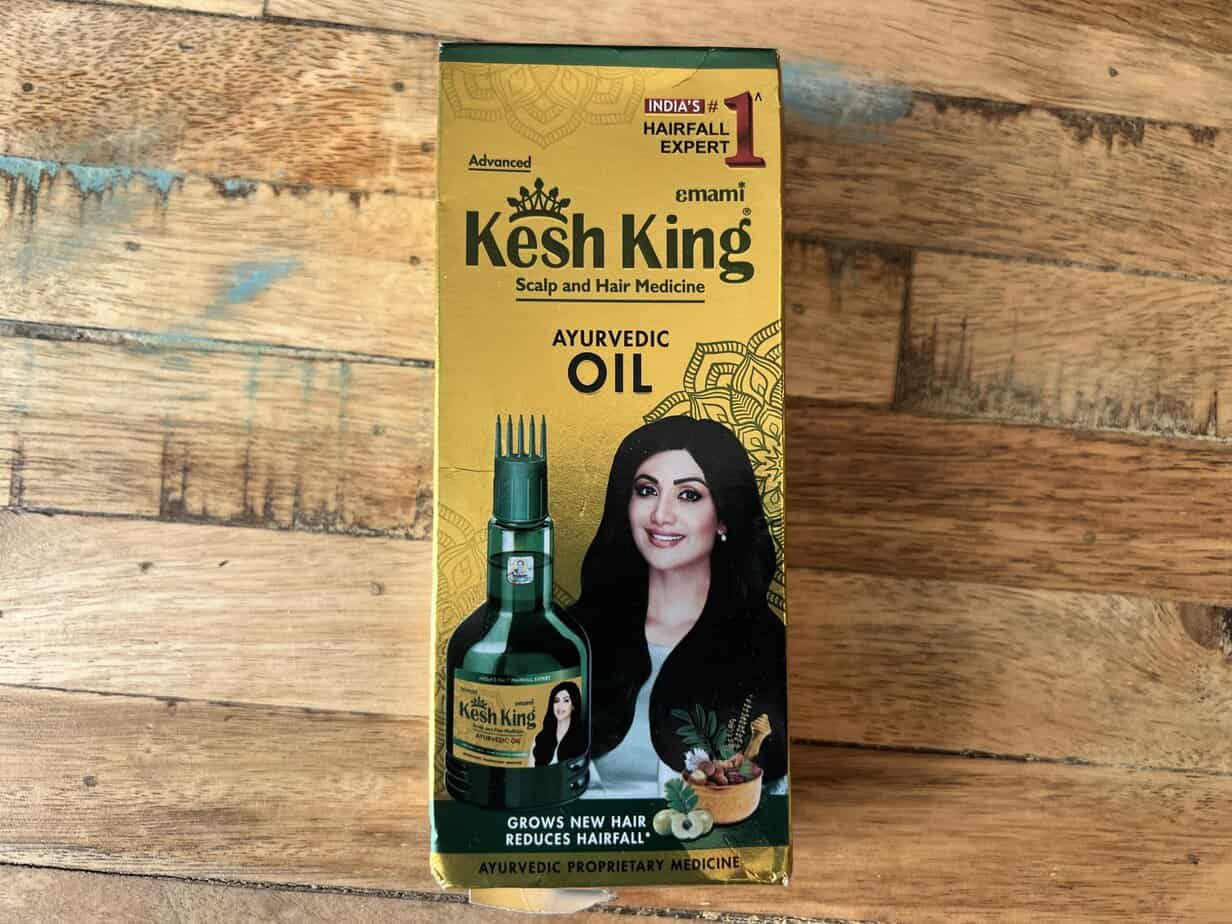
Do not use bhringaraj if you suffer from blood clotting issues or are on blood thinners.
It is best to massage this oil directly into your scalp. Rub it in and let it sink in, and sit for around an hour. Rinse it out afterward, preferably by showering.
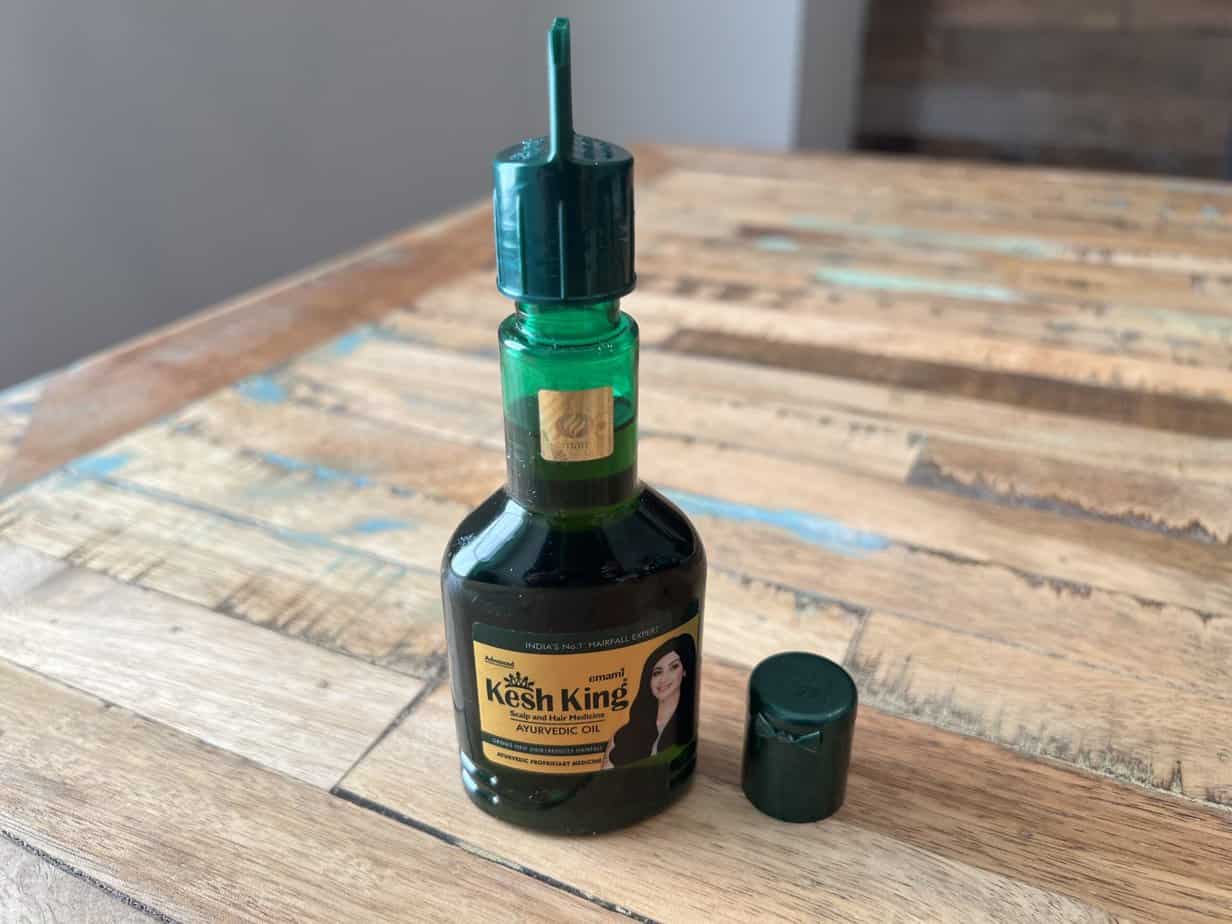
If your hair feels oily, try shampooing twice. You may also want to consider making a hair mask involving bhringaraj by mixing it with oil, water, or even yogurt. Apply it, allow it to sit and dry for at least 30 minutes, and then rinse it out.
If you are going to use it to try and bring out some of your hair’s former color, mix a teaspoon of this oil extract with two tablespoons of coconut oil and brew it over low heat. Massage this into your scalp, rinse it out again after an hour, and repeat this two to three times per week.
The Benefits of Ayurvedic Oil for Hair and Scalp Care

1. Fighting Dandruff
| Herbs | Benefits |
| Goksura | Helps in curing dandruff and headaches |
| Tulsi | Helps remove dandruff and reduces tension |
| Kari patta | Removes dandruff and aids in reducing hair loss |
| Bibhitaka | Helps cure dandruff and dryness |
Bhringaraj has antimicrobial and antifungal properties, both of which can help ward off the kind of bacterial or fungal infections which give rise to certain forms of dandruff.
In addition, a 2015 study published in the International Journal of Research in Pharmaceutical Sciences found that, when combined with frog fruit, it was able to combat a kind of skin fungus known as Malassezia furfur.
Malassezia furfur is another potential cause of dandruff, giving you a one-two punch to protect against it. Of course, there are other causes of dandruff, notably dried-out scalps.
When your scalp becomes dry, it often becomes itchy, which in turn causes you to scratch it, dislodging already-loose hair follicles and skin and causing that embarrassing sensation of dandruff flakes fluttering down onto your shoulders.
This is why so many hair care products strive to protect against that by keeping scalps well moisturized.
At the same time, however, you need to be careful not to make your scalp too oily or moist, which is why it’s so important to ensure that you maintain a balance of natural oils in and atop your scalp.
While its abilities as a skin-soothing agent are nowhere as scientifically vetted as its antibacterial status, some have found luck with it. So if you have had success combating bacteria-related dandruff with Ayurvedic oil before, you might want to give bhringaraj a try as well.

2. Strengthening Hair and Scalp
Some users have reported that bhringaraj oil can strengthen hair follicles. On the one hand, this claim is far more anecdotal than some of the others.
On the other hand, if you have already had luck with this herb in other capacities, it may be worth seeing if you’ll get lucky again in this regard.
| Herb | Benefits |
| Sthutaila | Nourishes hair follicles and enhances hair strength |
| Manjishtha | Helps cure scalp diseases |
| Lodhra | Helpful in scalp infections |
| Karanja | Cures rashes and boils on the scalp |
| Musta | Beneficial for a healthy scalp |
| Nagkesara | Helps cure skin rashes and headaches |
| Kola | Helps reduce tension |

3. Combating Hair Graying
This is one of those claims made by users of bhringaraj, which requires a bit more explanation. It isn’t quite accurate to say that this herb can “stop” hair graying.
This is due in large part to the fact that hair graying is largely a genetic process.
There isn’t an herbal hair care or scalp treatment of any kind that can help with that. What this herb can do, however, as mentioned above, is add some color back into your hair.
It works to bring out the natural color in your hair, giving it some added color and volume. You may not be able to reverse graying, but this herb can help you bring out what color you already have and make it that much more vibrant again.
| Herbs | Benefits |
| Mehendi | Helpful in preventing premature graying |
| Bhringaraja | Help maintain your natural hair color |
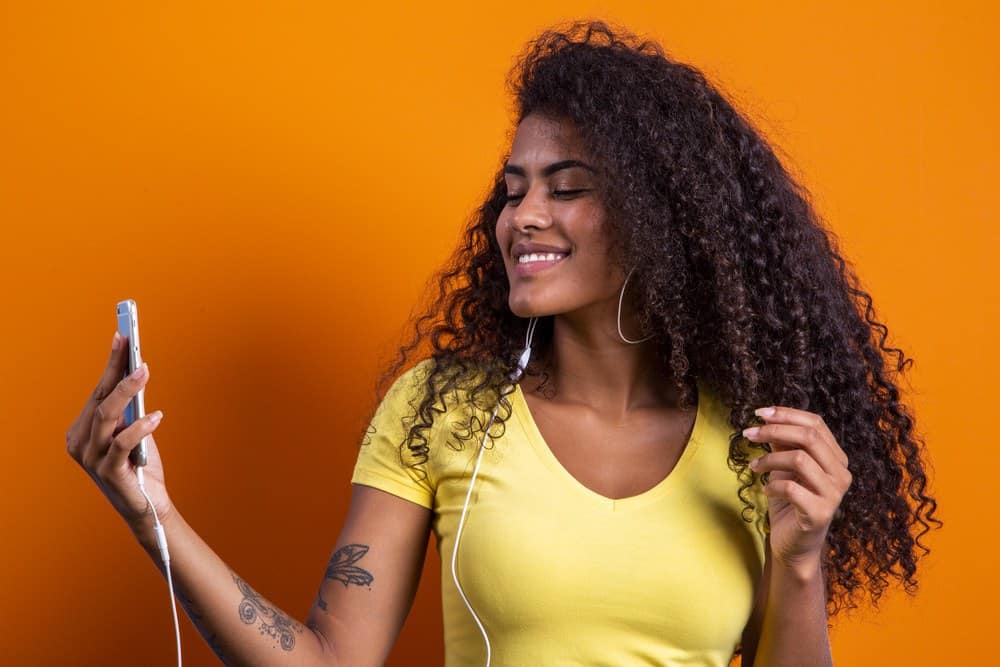
4. Combating Hair Loss
This is by far one of the most attractive claims for many interested in this hair care product. The older you get, the more likely hair loss becomes, and you want to do whatever you can to try and fight it and hang on to your luscious locks as long as possible.
If you are looking for a way to combat hair loss (or hair fall), you may want to consider this herb, as it has received good reviews from users regarding its ability to do so. However, this is again more evidence-based on anecdotes rather than properly peer-reviewed science.
| Herbs | Benefits |
| Methi | Helps make hair strong and prevents hair fall |
| Mandukaparni | Helps stimulate hair follicles, preventing hair fall |
| Haritaki | Helps reduce hair thinning |
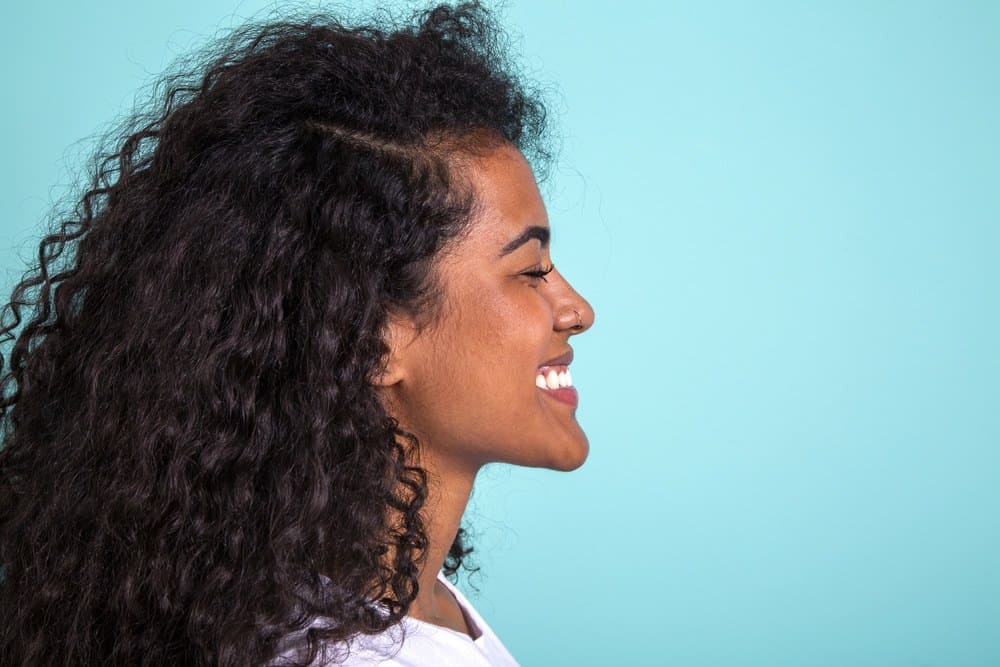
5. Stimulating Healthy Hair Growth
Nice as it is to stymie hair loss, you also want to make sure that you are able to regrow your hair as well whenever possible. Once again, we are confronted with the anecdotal nature of bhringaraj oil. Those who use it claim that it does the job.
Those who believe in bhringaraj oil to stimulate hair growth do so largely on the back of vasodilatation, which can help enhance blood circulation to the roots of your hair. The benefits here should be clear.
The better the circulation around the roots of your hair, the more likely they are to grow and flourish. Also, bhringaraj promotes hair growth by stretching out the anagen phase in the hair growth process.
Studies such as one in 2018 published in the Archives of Dermatological Research have found it effective in this regard, once more stating that it performed favorably when compared to Rogaine.
| Herbs | Benefits |
| Yashtimadhu | Boosts hair growth |
| Japa | Helps promote hair growth |
| Brahmi | Aids in hair growth and reduces hair fall |
| Til Tel | Promotes hair growth |
| Amla | Encourages hair growth |
| Neem | Helps enhance hair growth |

6. Increasing Aesthetic Appeal
As important as it is to make sure that your hair is healthy from a medical standpoint, you also want to think about the aesthetic side of things.
A certain sense of pride comes from knowing that you have a healthy, shiny, lusciously soft head of hair, and finding products that bring out and enhance your hair’s beauty can improve your confidence.
Bhringaraj has become a favorite of those who approach the hair care industry in this manner, adding some extra shine and luster to hair.
Does Ayurveda Herbal Oil Work?
There is scientific evidence to suggest that bhringaraj, a herb commonly used in Ayurvedic treatments and marketed as "Ayurvedic oil," has potential hair care benefits, including promoting hair growth, potentially fighting dandruff, and acting as a cosmetic hair-darkening agent.
However, it is important to note that Ayurvedic treatments, in general, are not seen as credible by the Indian medical establishment, and the broader medical promises made by Ayurvedic practitioners may not be scientifically supported.
Additionally, the efficacy of bhringaraj for hair care has only been studied on animals, so more research is needed to determine its effectiveness in humans.
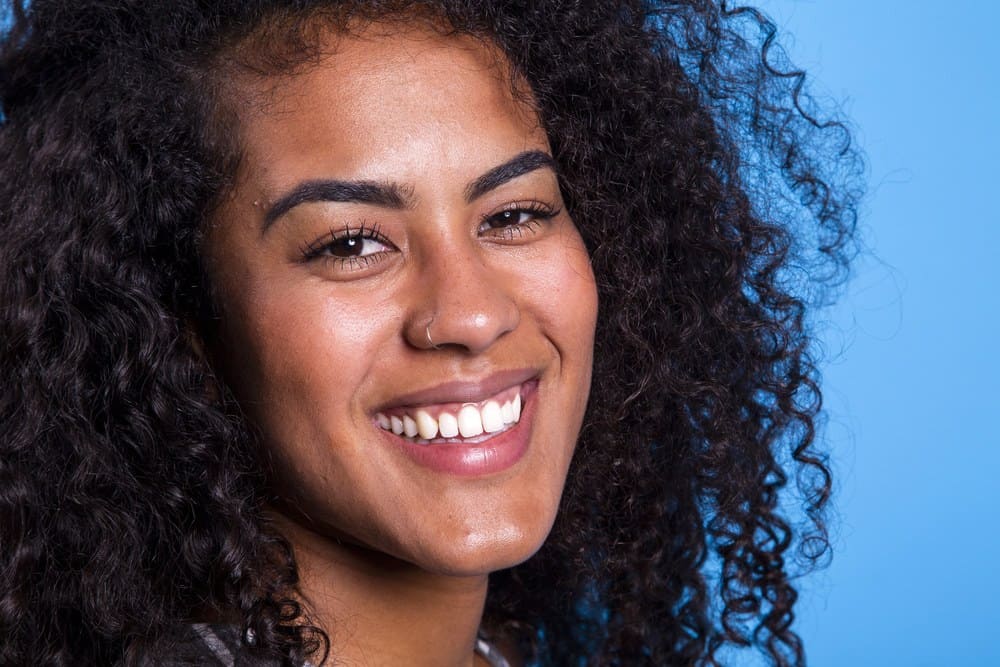
The first thing you need to know is that Ayurvedic oil is something of a misnomer. Ayurvedic treatments refer to traditional treatments given by Ayurveda people on the Indian subcontinent, but there is no single “Ayurvedic oil” or medicine.
Furthermore, Ayurvedic treatments are not seen as credible by the Indian medical establishment, with the Indian Medical Association opposing them as quackery.
The IMA has opposed a bill aimed at blurring the line between Ayurvedic and proper science and evidence-based medicine.
However, just because Ayurvedic medicine has been debunked doesn’t mean that some of the herbs and oil extracts used over the centuries don’t still have healing or hair care properties, which is what brings us back to bhringaraj.
Bhringaraj is one of the most commonly used in Ayurvedic treatments and is most likely what you’ll see marketed as “Ayurvedic oil.”
While the broader medical promises of Ayurvedic practitioners may fall flat, there is some scientific evidence to suggest that this herb may actually be able to help you with your hair care.
To get to the root of the oil's value, we need to push away the more spiritual claims made by some in the Ayurveda pseudoscience community and focus on scientific studies.
This study published in 2011 in the Journal of Applied Pharmaceutical Science found bhringaraj to be an effective antibacterial agent.
Bhringaraj has also been found to contain vitamins D and E, as well as calcium, magnesium, and iron. The herb is also often used as a massage agent, with all the soothing sleep-aiding benefits that come with it.
Given its hair care promises, however, it should come as no surprise that many of the studies concerning bhringaraj focus on its hair treatment abilities.
One study in 2008 using albino rats found evidence to suggest that it could promote hair growth. This is corroborated by another study in 2009 in the Journal of Ethnopharmacology, with similar results.
The 2008 study on mice also suggested that it may be more effective in stimulating hair growth than Rogaine.
While you shouldn’t base your hopes for hair growth entirely on studies conducted on mice, it is nevertheless a promising sign.
Furthermore, those antibacterial and antifungal properties can potentially help fight dandruff. Another study in 2008 noted bhringaraj’s ability as a cosmetic hair-darkening agent.
The Origin of Ayurvedic Oil for Hair Care
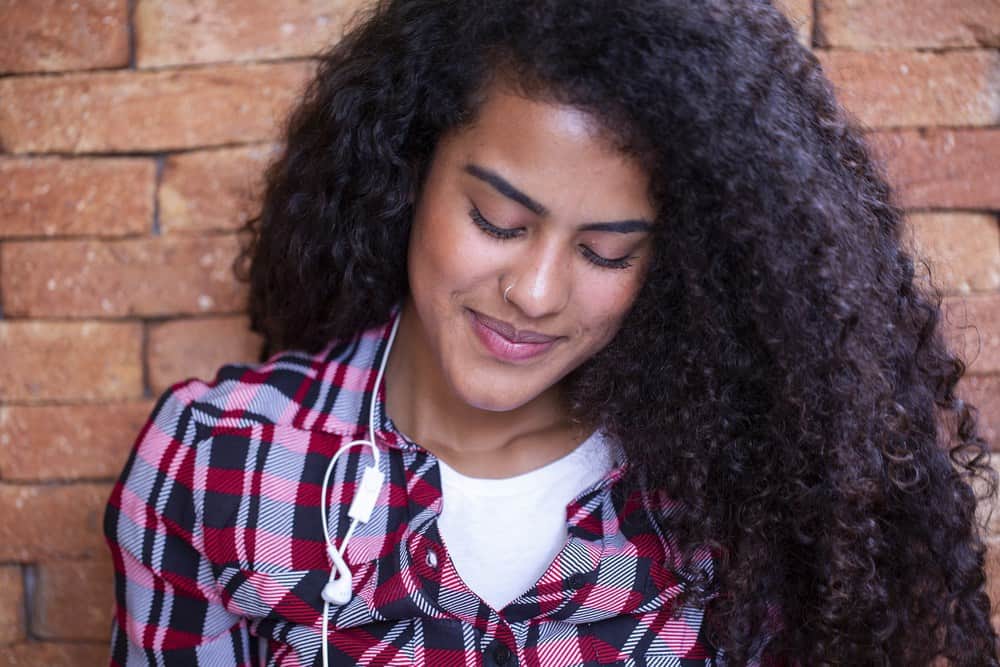
Some proponents of Ayurvedic oil treatments assert that they are derived from the ancient practices spelled out in early Hindu texts. However, the practice really took off in the West in the 1970s and ‘80s, with people such as Babi Hari Dass supporting the treatments.
However, there’s been a lot of scientific blowback against these practices.
Scientific holes in Ayurveda aside, the herbs used in Ayurvedic practices are still real, and that’s what we care about most when it comes to using Ayurvedic oil for hair care treatments.
The Ayurvedic herb we’re going to focus on is called bhringaraj, which is a staple of ethnomedicine in parts of Bangladesh and Southern India.
The Ayurvedic herb is sometimes known in English as a “false daisy.”
It has the vernacular names “Guntagalagar aaku” in Telugu, “Kannunni” in Malayalam, “Bhangaro” in Gujarati, “Karisalankanni” in Tamil, and “Kesuriya” in Bengali.
This herb is a member of the sunflower family, and as this cluster of names would indicate, it is found all over the Indian subcontinent.
It is a creeping herb that can grow to a height of approximately 10 feet (or 3m), has flowers that measure 6 to 8mm in diameter, and has cylindrical grayish roots.
Which Ayurvedic Oil Is Best for Hair Growth?
Among the various Ayurvedic oils available, coconut oil, amla oil, and Brahmi oil are some of the most effective oils that nourish the scalp, prevent hair breakage, and promote hair growth. Coconut oil is rich in essential fatty acids and antioxidants. Amla oil is loaded with vitamin C, boosting collagen production. Brahmi oil stimulates hair follicles and improves blood circulation.
Which Is the Best Ayurvedic Hair Oil?
Choosing the best Ayurvedic hair oil depends on your specific hair concerns and needs. Some of the most popular and effective Ayurvedic hair oils are Bhringraj oil (with vitamin E, iron, and calcium to nourish and strengthen hair follicles), Amla oil (rich in vitamin C and antioxidants that protect hair), and Neem oil (antibacterial and antifungal properties that treat dandruff).
Which Is the Best Ayurvedic Oil for Hair Loss?
If you are struggling with hair loss, the best Ayurvedic oils for hair loss include amla oil, Brahmi oil, and onion oil. Amla oil is rich in vitamin C, which boosts collagen production and strengthens hair follicles. Brahmi oil stimulates hair follicles, nourishes the scalp, and improves blood circulation. Onion oil contains sulfur, which also improves the scalp's blood circulation.
Is Parachute Ayurvedic Oil Good for Hair?
Parachute Ayurvedic Oil is a blend of 25 Ayurvedic herbs and is designed to promote hair growth and prevent hair fall. This oil contains ingredients like bhringraj, amla, methi, and coconut oil, which are known for their hair growth properties. Parachute Ayurvedic Oil is also free from mineral oil and other harmful chemicals, making it safe for daily use.
- Ayurvedic Hair Growth
- How to Use Triphala Powder for Hair
- How to Make Thyme Oil for Hair
- Sandalwood Shampoo for Hair Growth

This is by far one of the most unique hair growth oils on the market today and one of the most complex choices that you’ll be confronted with when choosing which ones to add to your hair care routine.
Ayurvedic oils certainly have their red flags, as mentioned several times in this article.
However, what is key about the processes outlined in this article is that they steer clear of the more fantastic claims of those in the Ayurveda community and instead focus on actual science being done on the hair care side.
You should never buy a hair care product or any other medical substance expecting supernatural miracles, and you should always demand evidence for claims.




